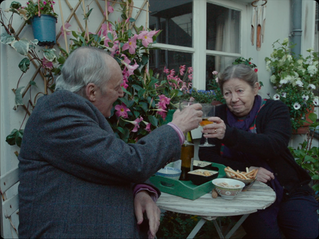Two Cars, One Night
- Isobel Wise
- Nov 1, 2020
- 1 min read
Taika Waititi, 2004

Barely surpassing eleven minutes, Taika Waititi weds his cultural specificity to the universality of childhood boredom by depicting three children waiting for their parents in the car park of a hotel bar. Scenes in which the outlying adults appear are shot in time-lapse; smoking and gesticulation hungrily devour time, surfacing as blurry, frenzied movement. However, for the children, the wait seems eternal. They amuse themselves with the few distractions at their disposal: the wind-up windows, the reclining car seats and each other. Their dialogue, unequivocally earnest and age-appropriate, is peppered with taunting and boasting. Their interactions traverse sexuality, wealth, bravado and prospects yet never stray into territory too mature or orchestrated. Whilst being largely plotless, it is the subtext of Two Cars that amplifies its action. Far from providing any explicit reference to parental neglect or endangerment, Waititi presents the three children within an adult world both figuratively and literally. Left unsupervised and at the mercy of strangers, the children are shown to occupy, but importantly not control, this nighttime world. They may sit at the steering wheel but they have not been handed the keys. The innocence and naivete in their solicitation for companionship is presented in opposition to that which, one presumes, occurs in the hotel proper. Though it speaks to age-specific boredom, coping mechanisms, and behaviour, Two Cars ultimately serves as a perusal into human connection. Carried by its witty dialogue and sensitive performances, it is a film whose understated nature only augments its poignancy.








Comments